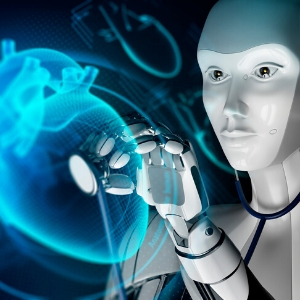Future Of Technology In Healthcare

The key technologies that will redefine the future of the healthcare sector in 2020 need to be analyzed. These key technologies are the basis for many booming health-care innovations that are upsetting the industry. To keep pace with this continuous change, health organizations must adopt new technologies that improve health outcomes, make care more efficient, cost-effective, and value-added – based on care for patients and their families.
Regulators will also have to focus increasingly on exposing patients to new treatment paradigms. New technologies in combination with a variety of new drivers, including technology – centric transformation – lead to cost reductions and ensure added value – based care in the healthcare industry.
Every piece of health information collected has the potential to draw on learning to manage the health of a larger population. For example, tracking heart disease patients for 20 years would provide insights into how best to treat future generations of heart disease patients. Any technological approach has potential benefits and risks, and requires in-depth engagement with experts from different disciplines to reconcile benefits and risks.
And yet some of the most promising new technologies coming out of US research and development laboratories are facing regulatory regimes developed prior to the adoption of these technologies, such as remote monitoring devices for patients. Uncertainty in the legal landscape can limit the development and application of such innovations in the healthcare sector. We need policies that foster digital health innovation while adapting to the new opportunities that the health technology community is opening up for the future. Digital health makes healthcare more accessible, convenient and affordable and improves patient outcomes.
Since we live in a digital age in which everything is interconnected and interdependent, we can assume that the five technology trends mentioned above have great potential for shaping the future of the healthcare industry. The US must show a way forward in the fast-moving digital health revolution and promote innovation in health technology.
Collecting big data information will undoubtedly enable us to use machine learning much more efficiently than ever before in the healthcare industry. Blockchain is a great example of how data encryption can be used and popularized by making its presence known in the healthcare industry. Blockchain will have a huge impact on how it can popularize the use of data in healthcare and other industries in general.
The future of the healthcare industry is bright, and we can certainly expect to see significant improvements in the lives of professionals and patients in the coming years. The evolution of future health care will also have implications for the treatment of a wide range of medical needs. With the advent of streaming services, healthcare can engage much more efficiently and efficiently than ever before.
Accessibility will also improve, as those who do not live near a medical facility will be able to use telemedicine to connect more regularly with their doctors and other healthcare providers. The digital future of health care requires forward-looking and proactive care that focuses on providing people with good care based on their unique values, needs, and circumstances.
By using the right tools, technologies and strategies and building systems that benefit consumers and providers alike, healthcare systems can increase operational efficiency, reduce costs, improve patient outcomes, and improve quality of life.
Healthcare systems are at a crossroads: they face financial and resource constraints, while consumers seek more personalized care. The digitally enabled healthcare system of the future is one in which consumers are connected to health systems that will have a transformative impact on the delivery and quality of care. Tailoring treatment plans to individuals and anticipating outbreaks of certain diseases offers promising benefits.
Pharmacogenomics, in particular, could help reduce billions of dollars in overspending on health care, particularly in areas such as diabetes, heart disease, cancer, and cardiovascular disease.
For a sophisticated pharmacogenomics system to work, the healthcare industry needs tools that can aggregate and analyze big data and digital health information, VNJ said. These tools for big data analysis and pharmacogenomics are still being developed, but the next big advance on the horizon could be the use of large, high-quality data in the form of genomic data. This data is used to transform personalised care and medical research.
In particular, the future of elderly care and home health care will benefit from the increasing waves of IoT. Data technology is making care increasingly decentralized, with licensed individuals taking care of care at home. AI tools can connect health monitoring and diagnostic technologies and data to distributed care networks, making care delivery more efficient and cost-effective – more effective. Over the next decade, VNJ says, we will see the use of big data to improve patient outcomes in the healthcare industry.

Jigar Trivedi
M.D. & CEO - VNJ Innovations
Share:
More Posts

Covid-19 Pandemic : An Opportunity For Technology Companies To Escalate Growth
Covid-19 Pandemic : An Opportunity For IT Companies To Escalate Their Growth According to a new study by the University of California, San Diego, it

Tips To Manage a Team of Remote Developers During the Coronavirus Crisis
Tips To Manage Remote Developers During The Coronavirus Crisis To help us manage the global coronavirus pandemic, we surveyed our customers and asked them how

Best Fitness Apps You Can Use For Workout During Quarantine
Today we are facing a worldwide lockdown that keeps us home. Although the situation is overwhelming and causes a lot of difficulties, the best we



